#so DEEPLY ENTRENCHED with and can NOT be separated from the consequences of her actions. like everything that happens every series of
Text
everytime i think about kath for too long especially when considering the wider picture im like. ngeremes plastik
#shes so. chews on railing#she was best friends with eve and aaron. she killed aaron. she fought in a rebellion to overthrow a tyrant. she became an empress after.#she adopted reza liz n nia n genuinely shes them as her children. she was barely a mother. she never knew what having caring parents felt#like. liz never knows what having a mother would even feel like. she wants desperately for nate to see her as a mentor and parental figure.#she killed his dad. she made his mother a widow. she killed aaron. she killed aaron. she killed her own best friend.#she never unlearns the ideologies her parents taught her despite spending years fighting a tyrant. she wants to protect the world from#anymore harm. she goes about it by subjugating territories after territories under her own rule. she thinks herself a reluctant villain.#she thinks herself a hero whos the only one capable or even willing to do what it takes.#ugh. ughhhh. i dont even hate her. i dont exactly Like her either. idk#shes a character for the narrative at least. i dont need to feel one way or the other for her.#though funny thing about her character is that her unresolved issues was catastrophic on a global scale and xu's canon is basically#so DEEPLY ENTRENCHED with and can NOT be separated from the consequences of her actions. like everything that happens every series of#important events every character dynamic every characters MOTIVATIONS the absolute CORE of the narrative conflict and every important#character is so deeply deeply a result of her actions. and she doesnt get much screentime as the rest of the cast. lol#we only get to her in part 3. which is arguably maybe the second most appearances of every parts. 4 and 5 shes basically relegated to side#character. part 6 shes there for the Final Confrontation. she gets more screentime but it doesnt actually mean much because every non-main#character gets more screentime because part 6's allllll about the conflict being bigger than xander flip and ari. so honestly despite being#the main antagonist. arguably everything that happened a result of her. shes actually kindaaaa akddmfoslor.#maybe because xu is more about interpersonal connection than anything else. meeting halfway meeting as equals. and kath has made herself to#be no ones equal. the top of the top. cool. detached. suave. charismatic. ruthless. nonchalant. egotist.#not your mother. despite wanting so so bad to be one. not your friend. despite being so so lonely and missing older times.#in a way she rlly does encapsulate xu's core theme and conflict. connections of equals vs isolations of hierarchies. and she is the highest#of all. so she must be the most isolated of all.#idk. everything is ur fault girl. u couldve had a better life. your best friends. maybe therapy before deciding 2 become a mother of three.#and yet it couldnt have been any other way. because u couldnt have been anyone other than kath.#and maybe theres some form of tragedy in that
1 note
·
View note
Text
Elisabeth: Bellaria
In “Bellaria”, we have another Essen exclusive. It’s a dour number (show me anybody on earth who has had this stuck in their head), featuring Franz Joseph and his mother, Sophie, as they clash and finally have a falling out over Elisabeth.

IT ONLY TOOK YOU LIKE A DECADE GOOD JOB FRANNY JOJO
The more I think on it, the more I think excluding it from the Takarazuka version was a good idea. Not because it’s not important, but because it doesn’t really have a place in the story the Takarazuka is looking to tell. Franz Joseph develops a backbone, in a sort of crunchy bug exoskeleton way, and Sophie actually finds a sympathetic toehold.
There’s no place for either of those things in the Takarazuka. Elisabeth isn’t entrenched in a mutual bitter power struggle with Sophie, she’s a victim of low-key villainy in the Evil Stepmother vein. Franz Joseph isn’t grappling with his inherent weakness and isolation, he’s a cardboard figure playing as Death’s romantic rival. There’s nothing this song can bring to what the Takarazuka wants to be, and as it’s entirely character-driven, we don’t even need it for plot purposes. TO THE CUTTING ROOM FLOOR WITH YOU
So let’s take a look at what it does for its respective characters in the Essen version. It falls just after The Last Chance/Malady, so when Elisabeth learns of Franz Joseph’s adultery and decides to make it an opportunity for her to do whatever the fuck she likes. Which, if you recall, is to wander around Europe for the next couple decades, as you do.
That decision hasn’t yet been made (or at least not revealed), so while I can’t imagine Franz Joseph doesn’t expect some consequence for his dick-sticking choices, I’m not sure he foresaw his personal life becoming twenty-something years of postcards. In a rare gesture toward him, I’ll say that I’m not sure he would do anything different here, even if he did know.

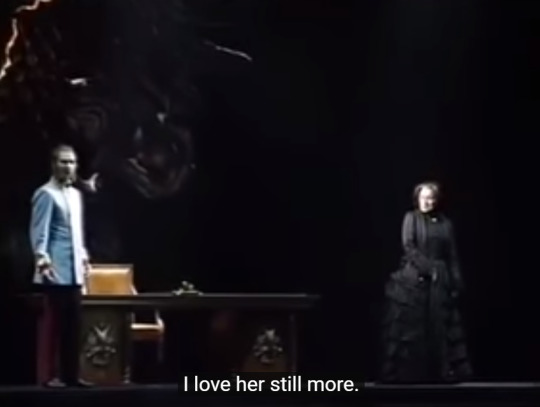
I do believe he means it, as much as I believe that the fact he had sex with someone else isn’t the full stop on the sentence. Elisabeth has done her level best to push him out of her life, even after he’d done what she asked, and after years of this with no end in sight, I can’t fault him for looking elsewhere. I don’t think fucking someone else was the right band-aid to grab from the troubled marriage fix-’em-up box, so I’m not shoving all this on Elisabeth either, just that there’s enough blame to go around.
So yeah, I’ll hand it to Franz Joseph for saying “I fucked up huge, and to try and make it right, I’ll give Elisabeth whatever she needs from me.” AND THEN DOING IT. He immediately puts this into practice, by telling his mother that he’s done with her copious amounts of bullshit.

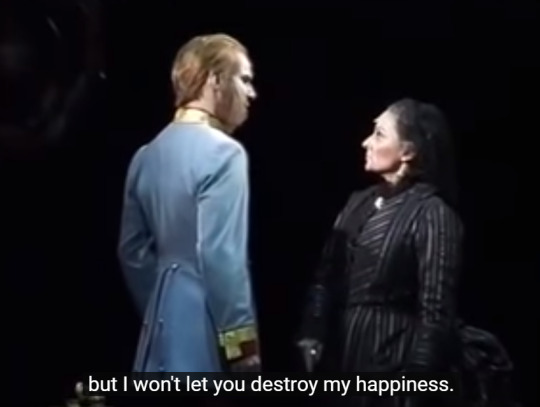
GOING TO BET SOPHIE DIDN’T WAKE UP THIS MORNING THINKING SHE’D HEAR THIS
Sophie tries (and also doesn’t try) to defend herself, and now to pop her a little bit of credit too, SHE DID NOT MAKE YOU HAVE THE SEX FRANNY JOJO THAT WAS YOUR CALL FRIEND. She also makes the entirely valid point that her and Elisabeth’s hatemance has actually nothing to do with him.
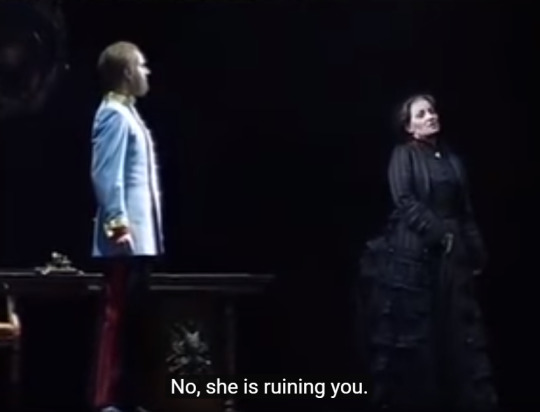

IT’S NOT EGO WHEN IT’S TRUE
They have a back and forth, with Sophie saying she’s fighting against Elisabeth (”And me!” Franz Joseph says NOT INCORRECTLY) for the sake of the monarchy, and here’s where things with Sophie get extremely interesting.
Agree or disagree with Sophie and her methods, she’s been consistent in her motivations since literally Day One of their marriage: Elisabeth is Empress now, that is the role she willingly accepted.



REMEMBER WHEN THIS HAPPENED SEE IT WASN’T JUST A THROW AWAY IT’S A CENTRAL POINT ABOUT ELISABETH. Nobody forced her into this role, she embraced it with open arms, already knowing she longed for MORE freedom not less, and despite being directly and specifically told that this was was going to take a fuckton away from her. “To live with me will not often be easy for you,” Franz Joseph tells her well ahead of their marriage. “Under the yoke of duty, many dreams are lost.”
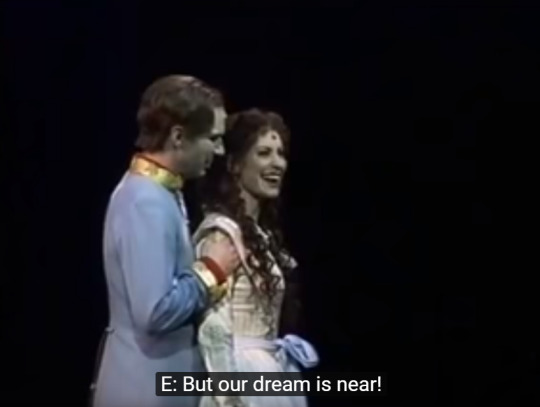
“We aren’t like the others, born to be happy.”

ELISABETH LISTEN
I FEEL YOU AREN’T LISTENING ELISABETH
BITCH THIS IS IMPORTANT SHUT THE FUCK UP FOR TWO SECONDS
Nobody tricked her, nobody lied to her, every card was on the table, and she sat down anyway, with a teflon arrogance that’s almost impressive. “Oh none of this will actually apply to me, it’ll be fine!”
Spoiler alert: IT WAS NOT FINE
Sophie’s demanded one thing of Elisabeth, and that was for her to take on the duties and responsibilities of the Empress she agreed to be. Obviously what that means is defined and policed by Sophie, and we can discuss the fairness or unfairness of that, but it’s a separate conversation. What Sophie was after from the start was Elisabeth holding up her end of the contract she willingly entered into.
And by god, that’s STILL what she’s about here at the end of her time in this story.


She even sings it to the same music from that first morning, an excellent and very intentional call-back. I wouldn’t ever try to claim that I think Sophie wasn’t petty and didn’t take some personal delight in making Elisabeth miserable whenever she could; as this scene is showing us, Sophie was human, and we humans fucking love to be petty. But I do believe that the empire, not herself, was at the core of every choice Sophie made and every action Sophie took.
Everything Elisabeth has done and will do is for Elisabeth.
Sophie’s a smart woman, though, and she knows she’s finally lost. Franz Joseph will no longer hear her, and whatever happens from this point forward is out of her hands and away from her influence. With her loss, however, comes a touch of the freedom Elisabeth has spent her life pursuing, and Sophie comes as close to regret as I think she would have ever.




It’s the only hint we get of the struggle Sophie herself has carried. It’s a suggestion that she, too, wanted something else out of life, that her actions have been intentionally crafted, not naturally born. Sophie has demanded so much of Franz Joseph, and Elisabeth, and their children, but no more than she’s ever demanded of herself.
I was surprised by how deeply I responded to Sophie in this moment. It’s so small, but so good, and I must give credit to Sophie’s actress as well, for the way the strength and defiance just bleeds out of her. Before our eyes, Sophie shrinks, going from an indomitable force to an exhausted, defeated old woman.
Before she leaves, Sophie has one final bit of advice for her son. “Those who forget their duties must perish. Only when it is too late will you understand that.”
“Understand me,” Franz Joseph replies, holding firm and finally refusing to capitulate to her.
Then this, which UGH, is just played SO SO WELL. Sophie doesn’t look at Franz Joseph when he says this. Instead, she bows her head, accepting her defeat, and you can see how it just GUTS Franz Joseph to see it. He reaches out for her, unable to stop himself, but she’s already turned away.

She hasn’t noticed and slowly begins to leave the room. She’s been using her cane the entire scene, but now it’s particularly noticeable as she leans her entire weight into it. (It’s a brilliant example of using a prop to build a character.) Franz Joseph takes the opportunity to gather himself. Near the door, Sophie turns to him for one last look, a silent appeal perhaps, or an opportunity for him to change his mind and undo some of what’s been done.


Instead, he’s standing at attention, and gives her one last formal bow.
AND I’M SCREAMING. Everything Sophie’s been demanding of Franz Joseph, everything she’s drilled into him (”Be strong. Be hard. Be cold.”) has finally come to full bear, and against her.
They say nothing. Sophie leaves, and Franz Joseph stands alone, dwarfed by the Hapsburg crest.

#jet wolf watches elisabeth#a novel by jet wolf#i feel i did awful on this one#particularly for how long it took me#I'M STRUGGLING TODAY MY APOLOGIES
11 notes
·
View notes
Photo

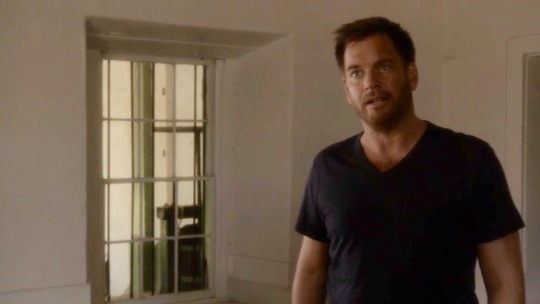
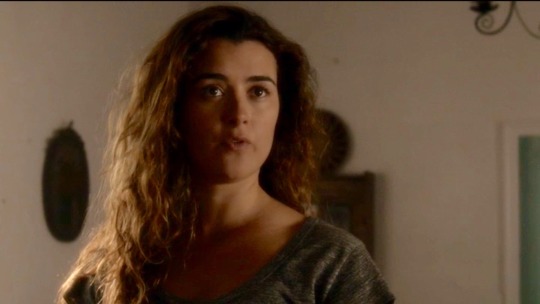
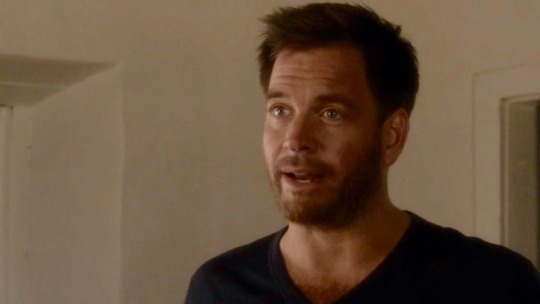
You cannot beat down my door one minute, and expect me to face my old life again the next.
Sigh.
Ziva. :(
As painful as this scene is, though, I love their fight. Like really, really love it.
For starters, it’s such a lovers’ spat if ever I saw one. Their body language is just so different than in any one of their other arguments. There’s a familiarity and a homeyness there, but there’s also this palpable tension, like they’re in a pressure cooker that’s about to blow.
This is going to get repetitive, but my heart just breaks for Ziva, because it’s so obvious how much she’s warring not just with Tony, but with herself, about everything that’s happened. Her MO is usually to just cut her losses and fool herself into thinking she’s moved on from whatever the latest trauma is, but she can’t this time, because he’s literally barged his way into her home (and her heart), and now she can’t ignore her feelings anymore. And we know that despite her protests to the contrary, she did want him here-- or else she wouldn’t have left him that picture or her necklace. But she’s terrified at what the consequence will be, because she knows, like we do, that she can’t have nice things, and someone will always get hurt as a result of her actions, so secluding herself is the only smart decision in this conundrum.
I can only imagine what her reaction was when she saw him on her doorstep (haha remember when I actually did imagine it), and what could have been running through both of their minds, but man, are there some unresolved issues here.
Hey! I had to take the call.
You did not have to do any of this. Why are you here?!
Because you invited me!
That was before.
Before what?
You should not have come.
UGH BABIES JUST KISS IT’LL BE BETTER
There’s just so much there.
You can see their central conflict here-- Tony’s still deeply entrenched in Before, whereas Ziva’s had months to separate herself from it to the point where agent life is foreign to her.
I just love the part where Tony exclaims, “Because you invited me!” because again, it’s so domestic and frustrated at once. He hasn’t seen whatever Ziva’s seen in the last three months, so his head is still stuck to the pre-clusterfuck Them, the Them they were before Ziva left for Israel when they were totally doing it, where they were IM’ing that they missed each other and signing their texts with XOs and generally being disgusting. (And by disgusting I mean the absolute best and have I mentioned I hate this show?)
So Tony totally expected to reunite with Ziva and pick up right where they left off in DC, reminding her that she too wanted him there. Because at one point she wanted this too. That is the place they were in, and he’s desperate to get back to that.
But Ziva is being stubborn because she made her mind up long before he showed up at her hideaway, and she feels like she has to stick to that plan. She never says “I don’t want you here anymore,” but very pointedly tells him that he should not have found her. There’s a difference there, and probably has more to do with the fact that she doesn’t feel like she’s deserving of him, of having someone scour the Earth for her time and time again. But he’s here and she can’t just brush him off anymore.
Because Before, it was different. Before, they were those people and had made those plans and were working towards a new kind of life together. But Now, he is there and she is here and the divide seems insurmountable. So she thinks they should just cut their losses before they get hurt, but what she doesn’t realize is that it’s too late for that.
Also: They’re so pretty. And should make out more.
(Shallow note: I love what they’re both wearing.)
34 notes
·
View notes
Video
youtube
Going deeper into our Conspiracy Theory of Everything, we explore the subject of the Secret Government, the controlling powers that be, and some of the tactics that they use to keep us little, keep us limited, and some of their experiments that have been employed on humanity in order to maintain control.
The series is almost over, but the journey is only just beginning. While some content had to be cut from Youtube due to the impending censorship that would follow, you can access the entire series in Spirit Conspiracies - completely free.
Finally, we come to the final chapter in our Conspiracy Theory of everything, the point in which everything comes together, all the aspects of our theory weaving together into a new fabric of reality, if only we choose to see and interact with it..
You see, every conspiracy theory we’ve discussed so far is nothing more than a reflection of something much more significant - the Holographic Demiurge. We began our journey with the Demiurge, and now we must return to it - to shatter the old paradigm.
We must recognize that the Demiurge is not just something imposed upon us, this false reality just like the Matrix - but it is a state of consciousness within us. The ancients who spoke of the Demiurge did not rail against it physically, for they understood that the powers that be were not the source of the Demiurge. They knew that rebelling against the Roman empire would have no effect at all, just as today - rebelling against world governments or the massive corporations will do us no good but stir up karmic trouble for ourselves.
No, the Ancients turned their attention inward to the mysteries within them and strove for the inner revelation of truth, knowledge, and wisdom.. They followed the wisdom teachings set down before them, from the writings attributed to Thoth to the ministries of Jesus, to shatter the illusion of separation. In truth, the Demiurge is within us, a form of duality consciousness, a place of disconnection from ourselves and nature, inflicting upon us the belief that we are separate from one another and subject to all manner of suffering from the world around us.
Indeed, this reality feels real to us, just as accurate as it was to Thomas Anderson before he met Morpheus. And it is this way for a reason, for there are lessons of duality, lessons of physicality, lessons of Truth, Love, and Authenticity - which we must learn while we are here. This includes stepping outside of the limiting bubble of our own lives and seeing something greater. As we do so, we step into becoming active creators of our destiny and become shapers of the world as we know it.
Yet humanity today, as we have been for thousands of years, exists within pockets of consciousness, bags of belief, and self-identity. Where a thousand years ago, we were segmented more physically, today there is a more in-depth segmentation mentally and emotionally, as we isolate into bubbles of perception based on our search history and the algorithms that decide for us what we see next and propel us each down our paths of least resistance, rather than toward each other.
You might call such things paradigms of belief or existence. Paradigms in which people live, either in minorities or majorities, where individual and communal belief systems shape the actions that people take, leading to natural outcomes resulting from those beliefs. Christians who identify with Jesus returning soon will live by this belief, which will dictate their actions. Those who believe the Earth is flat would behave and communicate differently than if they thought the world is round, often each vehemently attacking the opposing spectrum.
Yet, do such things matter when most of us spend our days entrenched in suffering, often taking it out on one another in silent, subconscious ways? If the end goal is unity, free of this duality consciousness, how do we get there? Especially when conspiracy theories of the great reset and the implementation of a One World Government are so pervading, is it truly possible to bring everyone together with truth, love, and authenticity? Or is at least part of humanity doomed to enslavement forever?
As we have explored in great detail so far, it seems as though mental and emotional manipulation is a factor we must watch out for, but many people are asleep to this idea at all. They struggle through the day today, but they fail to look for anything more due to their connections in life. When doctors tell them that medication is the best way to treat depression, they take it without asking questions, end of the story. When the media tells them to be afraid of the pandemic, they comply, and fear reigns supreme. With this existing paradigm and so many entrenched in it, do we have any hope of genuinely liberating ourselves en mass? More to the point, are we truly ready for such a change?
In 2020, humanity collectively learned a lesson about the nature of quarantine, separating and isolating ourselves from each other for long periods. However, the classes of quarantine go more in-depth than our physical lives, for we also saw and learned about the layers of quarantine within ourselves, between our egos and our souls, and explored just how much ability we give ourselves to ask questions and go deeper, or only accept things at the surface level.
This is why we are discussing paradigms because there are many paradigms out there. People are asking questions, people who aren’t. People who are listening, learning and growing, and others who like to talk about conspiracy theories but ultimately take no action in their lives make a difference. We may liken it to the biblical Parable of the Sower and the Seed, which says that some hear the divine word of God. Those who don’t, and even in those who listen to it - it sounds good at first, but unless the wisdom is nurtured, the seed dies, and they quickly go back to their suffering. These paradigms go beyond belief systems; they enter into or emerge from the realm of action.
Earlier on, we explored what might happen if humanity inherited advanced, nearly alien technology and what would happen if we suddenly had limitless power and the freedom to travel the universe.
While, of course, it’s easy to rebel against NASA, who may or may not be withholding the truth at their highest level, we must also look at our behavior and see if we have earned such a gift. Historically, human history is filled with colonization, subjugation, domination, and others' enslavement: human, animal, and nature.
There’s no question that today, undue prejudice like Racism and Sexism exist even within society's structures, and one that often goes un-discussed but just as significant is Speciesism. You might be fascinated to watch the Speciesism documentary, made by a young man who attempted to prove that animal farming wasn’t all that bad but ended up discovering that while we all believe the holocaust ended over 70 years ago, the truth is - there’s still a holocaust going on today. It’s found in the concentration camps that we keep animals in. Chickens, cows, pigs, fish, all of them are subjugated against their will, dominated, terrorized, and killed in mass to feed our growing, consumption-focused population.
Of course, the moment this conversation emerges, watch as some paradigms of belief will rail against it, for it is assumed immediately that this message is simply some political or pretentious advocation for Veganism. And while for this reason many turn to Veganism, ask any native American a few hundred years ago who rode across the plains in groups hunting buffalo, and you will find that there are natural ways of hunting that encourage freedom for ourselves and nature. In the paradigm of those native people, they were a part of the land as much as the animals were, they shared space with the same cosmic spirit, and as such - their beliefs guided their actions into ways of being that were natural, sacred, and pure. Even with the technology of their time, they understood better their impact on the world around them with more clarity than many cans in this later era.
Today, modern animal farming is responsible for a tremendous body of disease and suffering. The heart of the industry's beliefs is that humans have the right to subjugate other species because we’re bigger, smarter, and more capable. These beliefs are so deeply rooted in the collective unconscious that shifting these ideas in mass may take something big to uproot the paradigm even if we take a more biblical approach and observe that in Genesis - God gave humans dominion over the Earth and its inhabitants, we are still responsible to govern this world with grace, respect, and honor. We are her keepers, not captors.
But times have changed, and the technology of but a few hundred years ago has been quickly replaced by far superior tech… and what would happen if tomorrow we suddenly gained access to the power that we discussed, limitless energy, free to travel the universe as we desired? With the existing paradigm of collective consciousness, it may turn out the same way as any Iron Man movie, or even Avengers. What happens when the villain gets the arc reactor or the infinity stones? It’s nearly the same thing that misguided humans have done to each other, and animals, for millennia - they take what they want and care not of the consequences. And what would stop humanity from doing the same today? If our deep-rooted speciesism is not addressed, what happens when humankind encounters an alien species we’ve never seen before? Unless they are supremely advanced and can destroy us with the flick of the wrist but choose not to - which would be very humbling, what’s to stop us from imposing our will upon them?
In some ways, this question is a real representation of our world today. The pace at which technology has advanced and changed our lives may have outpaced our ability to evolve the wisdom appropriate for such power. Teenage girls’ mental health is at all-time lows, thanks to social media's gamification and addictive aspects. Any resource-hungry company that can manage its monitors and invades our privacy. We have gained the ability to heat the Earth, demolish rain forests, and shape the land perhaps more quickly than we can learn what the consequences of such power may be. Materially we may be advanced, but spiritually we have a lot of catching up to do.
Speaking to a new emerging paradigm, in some schools of geology, archaeology, and natural sciences, a new epoch of geological time has been proposed. As you may have seen in our Sumerian Epic series, the Pleistocene was followed by the Holocene, beginning around 11,650 years before today, which is the current period we are in now. However, increasing numbers of voices have argued that humanity’s impact on the environment and our ability to alter our world's ecosystem calls for us to be in a new epoch. This is known as the Anthropocene debate and argues that the natural world has become so affected by humans that it warrants a re-definition of our place in time. As of July 2020, the International Union of Geological Sciences (IUGS) hasn’t officially approved the term, but various “start” dates have been proposed for when this new paradigm of existence began, ranging from the beginning of the agricultural revolution up to 1945 when the peak in radionuclides fallout from the first atom bomb altered the environment of the time on a massive scale.
Even Dr. Stephen Greer described that many of the extraterrestrial species aren’t concerned with violence at all… but rather, are genuinely concerned with OUR attachment to violence as a species. It’s not hard to envision a future where humanity has spread itself throughout the galaxy just like in star wars, subjugating and controlling populations, trade, resources, and whole worlds all in the pursuit of profit, where Emperor Palpatine represents the darkest, vile, and most greedy parts of that which is within us… and where Luke and the Jedi then are a reflection of our hopes, purity, and dreams in our hearts. But is this a reality we want to create? One where we’re spread out throughout the galaxy, subjugating species that are less further along on their evolutionary path?
Perhaps the ultimate conspiracy for this great conspiracy theory of everything then, is the question… could it be possible that all of this subjugation we have today, the views of human mental and emotional slavery, while awful and terrible, is a necessary evil to collectively teach humanity of who we indeed are, and prevent us from leaving this world until we can do so responsibly? It’s a strange thought, flipping the conspiracies on their head, where the Illuminati - whoever they are - could at the highest level - higher still than the elite with their pedophile rings, which are still apart of the matrix of course - be simply watching people experiencing their darkness, making sure that we do not gain access to wield the power we are not ready for…? After all, the word Illuminati essentially means “enlightened ones,” but then again, this is just another paradigm of belief, and in this game of life, you choose your paradigm. We’re not suggesting this is true either way, but it is something to be mindful of, as there are a great many paradoxes in existence, and we must be free to explore them where they lead us.
And here we come to the heart of our Conspiracy Theory of Everything. This states that alongside technological progress to give us our material wealth, we need to develop spiritual technology within our bodies, which will help us navigate our ever-changing physical world. Only then may we truly ever advance to the next stage…
0 notes
Link
“Fake it until you make it” is an oft-repeated phrase among entrepreneurs promising to revolutionize, disrupt or transform. It can, however, have severe consequences for the healthcare sector when doctors and patients place their trust in the new or evolving venture. The criminal trial of Elizabeth Holmes, who faces a 20-year prison sentence, will help healthcare entrepreneurs see the legal ramifications of over-promising and under-delivering presumed medical advances.
This trial will generate headlines. More importantly, it will be a teachable moment for all of us trying to innovate our way through a deeply complicated and entrenched healthcare system – especially regarding patient-empowering technology. Holmes, and the company she founded, Theranos, marketed a means to disrupt traditional diagnostic business models where two large companies dominate a $54 billion market. The idea was to put patients in control of blood testing, using less amounts and creating a faster, lower-cost alternative. The business model envisioned consumers using Theranos equipment at retail locations including drug stores and supermarkets. As the marketing phrase goes, that was the “steak,” or substance to her pitch, but there was also “sizzle.”
The young, telegenic, and articulate Holmes became the widely-known public face of the company. Wearing black turtlenecks to draw comparisons to Steve Jobs and calling one of her blood-test devices “Edison” to align herself with the famous inventor, the media could not resist the story. That part worked: Theranos at one point was valued at $9 billion. Holmes declared her lab-test device was “the most important thing humanity ever built.” Much of the narrative she created about Theranos will now be used as evidence in her criminal trial just as it was in a separate Securities and Exchange civil fraud case in March.
Here is something we already know from the federal indictment handed down last month: prosecutors will cite Theranos press releases, media interviews, and promotional materials to support allegations that Holmes knowingly committed criminal fraud. In one example, the U.S. Attorney’s office for the Northern District of California cites a specific interview in which Holmes told a media outlet that Theranos could run “any combination of tests” from a single small blood sample. The indictment goes on to list public statements such as one on the company’s website that, “one tiny drop changes everything.”
In the Securities and Exchange Commission civil case, which Holmes settled, media interviews with the business press, which in turn were said to solicit investors, are likewise cited as evidence of financial fraud. The SEC’s civil complaint states that in 2013, “Holmes and Theranos began publicly touting Theranos’ proprietary analyzers in interviews with the media, notwithstanding Theranos’ use of commercially-available analyzers for patient testing.” Here too, several interviews with financial media outlets were used as examples including an e-mail exchange between Holmes and a reporter in which she tried to shape the story. As is widely known, the generally favorable media coverage that accelerated in 2013 abruptly ended.
Her company came under the scrutiny of the Wall Street Journal in 2015 when company whistleblowers went public raising questions about the underlying technology. This put Holmes and her company on the government’s radar. The narrative soon changed to actions intended to correct the company’s mistakes. Most notably, Theranos voided or corrected nearly a million blood-test results, calling into question untold numbers of health decisions made between doctors and patients.
Judges and juries take an especially harsh view of potentially harmful impacts on consumers. The FBI agent who investigated the case described charges of misleading consumers and doctors as endangering “health and lives.” Likely the most serious charge among the 11 counts Holmes faces is being unable to produce accurate and reliable results for numerous blood tests, including the detection of HIV, despite assertions to the contrary.
Yet Holmes is only the most recent and well-known among many healthcare practitioners who face charges or convictions of fraud. We can go back to the patent medicine movement in the early 1900’s, where a popular advertising slogan at the time was “a cure for what ails you.” In the late 1800’s there was actually a real-life snake oil salesman who traveled the country and gave demonstrations with live reptiles on how he made his product. Such antics with fake medicine led to the passage of the Pure Food and Drug Act in 1906. So, a century later, why does this keep happening?
One recurring theme leading to healthcare fraud is what medical scholars have labeled “eminence-based” medicine. Simply put, this is an over-reliance on personality and stature from the individual believed to have authority on a particular medical subject. The term is a play on the words “evidence-based” medicine, where facts are supposed to be used to evaluate medical advances.
Some lessons are already being learned. Early stage and start-up blood-testing companies are emphasizing peer-reviewed data and clinical trials. One telling insight from an entrepreneur, as reported in Marketwatch, describes Theranos as a “big crater in the industry.” The founder of privately-held Athelas, a blood-testing firm, said Theranos, if executed correctly, “would make a massive impact in a really old, archaic industry.”
Faking it until you make it may work to a certain point and allow entrepreneurs a limited degree of latitude among investors as they develop technical approaches to support business models. As an entrepreneur myself, I am well aware of the need to convincingly show the promise of an invention – even before it is fully finished. However, it becomes financial fraud — potentially criminal activity — when you are not honest about the risk. Medical and consumer fraud, when patients are sucked into the hype and subsequently misled, becomes exponentially more serious. Neither is acceptable. The bottom line: Holmes’ trial will offer insight leading to less hype and more high-quality innovation.
<a style="display:none" rel="follow" href="http://megatheme.ir/" title="قالب وردپرس">قالب وردپرس</a>
The post Why the Theranos saga and Holmes’ trial is good for innovation appeared first on MusicCosmoS.
0 notes